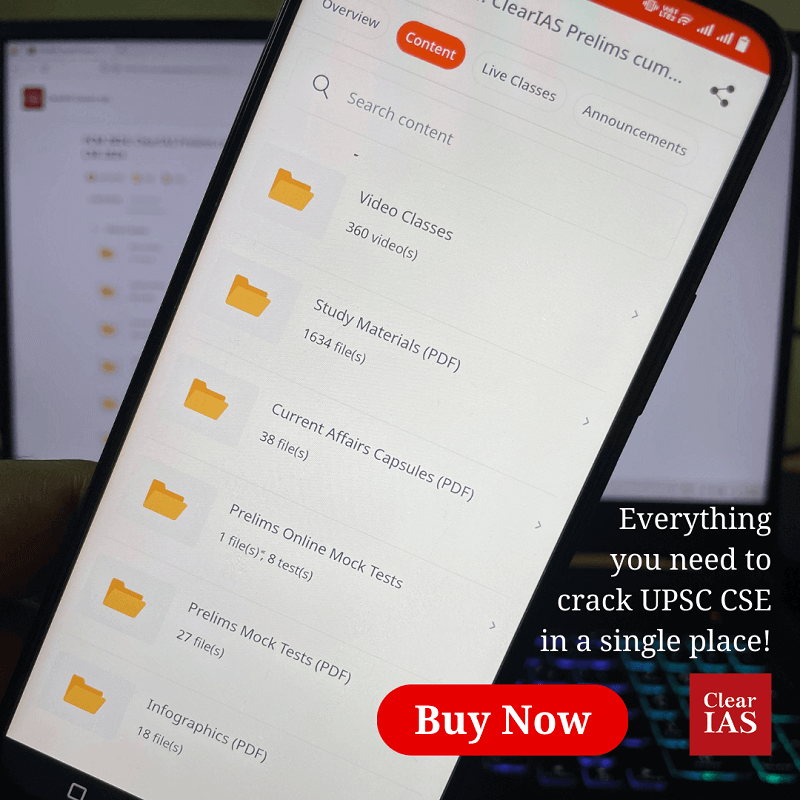 What are masala bonds? Why are its characteristics? Read further to know more.
What are masala bonds? Why are its characteristics? Read further to know more.
In 2019, Kerala Infrastructure Investment Fund Board (KIIFB), a financial institution owned by the Government of Kerala, listed its masala bond worth ₹ 2,150 crores in the London Stock Exchange’s International Security Market. The proceeds are to be used to finance the rebuilding the state infrastructure that was devastated by repeated floods in 2018 and 2019.
Asian Development Bank (ADB) also listed its 10-year masala bonds worth Rs 850 crore on the global debt listing platform of India INX. The proceeds would be used to support local currency lending and investment in India.
What is a Masala Bond?
Masala Bonds are rupee-denominated bonds issued outside India by an Indian entity.
These are debt instruments used to raise money from foreign investors in local currency.
The framework for the issuance of rupee bonds overseas falls within the External Commercial Borrowings policy.
The name Masala Bond was used to give it a unique identity.
Also read: Foreign Direct Investment (FDI) in India: Definition and Statistics
Characteristics
- If the borrowing is in foreign currency, one has to pay more while servicing debt when the domestic currency is depreciating.
- The issuance of rupee-denominated bonds transfers risk associated with currency fluctuations to investors and not to the issuers.
- Maturity period: Minimum original maturity period for Masala Bonds raised up to USD 50 million equivalent in INR per financial year should be 3 years and for bonds raised above USD 50 million equivalent in INR per financial year should be 5 years.
- Recognized Investors: Masala bonds can only be issued in a country and can only be subscribed by a resident of a country:
- that is a member of the Financial Action Task Force (FATF) and
- whose securities market regulator is a signatory to the International Organization of Securities Commission’s (IOSCO’s) Multilateral Memorandum of Understanding
- End-use Prescriptions: The proceeds of the borrowing can be used for all purposes except for the following:
- Real estate activities other than the development of integrated township / affordable housing projects
- Investing in the capital market and using the proceeds for equity investment domestically
- Activities prohibited as per the foreign direct investment guidelines
- On-lending to other entities for any of the above purposes and
- Purchase of Land
Benefits for investors
- Less documentation as there is no need to register as Foreign Portfolio Investment (FPI) in India.
- Masala bonds will provide diversification from the relatively shallow domestic bond market.
- Masala bonds open up an investment route for global investors who do not have access to the domestic market through FII / FPI route.
- Capital gains arising from rupee appreciation are exempted from tax
- These rupee-denominated bonds carry interest rate up to 5 percent over and above State Bank of India’s base rate.
- The bond can be settled in foreign currency through international custodians.
Benefits for borrowers
- Cheaper cost of funds as Masala bonds often issued below 7% interest rate.
- No currency risk as the companies issuing these bonds do not have to worry about rupee depreciation.
- The proceeds can be used for
- Refinance of rupee loan and NCDs
- Development of Integrated townships / affordable housing projects
- Working capital to corporate
- RBI recently allowed companies to raise rupee resources from overseas, in which the Indian companies do not hold any currency risk as the borrowing and payment both happen in the rupee.
Benefits to India
- Interest rates in currencies such as the US dollar, pound sterling, euro, and yen, are at very low levels. Hence it benefits Indian companies to raise funds via issuing Masala Bonds.
- It helps to internationalize the Indian rupee as international investors become more familiar with the Indian rupee, the Indian economy, and its growth prospects.
- There will be a fall in foreign currency-denominated external commercial borrowings (ECB) with an increase in the popularity of masala bonds. This will create a favorable position in the debt market concerning exchange risks.
- It’ll help in the development of domestic bond markets due to competition from overseas investors. This, in turn, will create a new venue for retail investors.
Issues
- According to Moody, the sustainability of financing via Masala Bonds is a challenge as investors are expected to be cautious in taking on currency risks from emerging markets.
- Further, periodical rate cuts by RBI have made Masala Bonds less appealing to investors.
- The possibility of higher taxes also has undermined the utility of the instrument.
- Exchange rate risks are still borne by the issuing economy if foreign investors redeem their holdings of Indian masala bonds in bulk due to reasons such as changing international interest rates or deteriorating macroeconomic fundamentals in India. In such a situation the Indian rupee is likely to face depreciation pressure.
Also read: Foreign Portfolio Investment (FPI)
Masala Bonds vs Dim Sum Bonds vs Samurai Bonds
The International Finance Corporation (IFC) named the rupee-denominated bonds of India as Masala bonds to give a local flavour with respect to Indian culture and cuisine.
Similar to Masala Bonds, there are foreign-currency-denominated bonds related to many countries.
For example,
- Dim Sum Bonds – China ( a Chinese renminbi-denominated bond issued by a Chinese entity in Hong Kong)
- Samurai Bonds – Japan (a Japanese yen-denominated bond issued by a non-Japanese entity in the Japanese market)
Note: The Chinese bonds are named Dim-sum bonds after a popular dish in Hong Kong. The Japanese bonds are named Samurai after the country’s warrior class.
Conclusion
According to the latest data from the commerce ministry and the Reserve Bank of India (RBI), a $5.5-billion equivalent of masala bonds has already been issued.
In comparison, China has issued Dim-sum bonds for over $90 billion. The rising demand for Dim-sum bonds has promoted the use of the yuan in global trade and also provided investment avenues for yuan-holders outside of China.
Offshore rupee liquidity and secondary market trading are needed to be established for the masala bond market to become a sustainable source of funding for Indian issuers. An increase in secondary trading will happen when the number of issuances increases. This will help in setting a benchmark for future deals.
However, experts warn that too much reliance on external debt even in rupees can impact our rating by global agencies. Hence Masala Bonds are best used in moderation.
Masala Bonds – UPSC Question
With reference to `IFC Masala Bonds’, sometimes seen in the news, which of the statements given below is/are correct?
- The International Finance Corporation, which offers these bonds, is an arm of the World Bank.
- They are rupee-denominated bonds and are a source of debt financing for the public and private sectors.
Select the correct answer using the code given below.
(A) 1 only
(B) 2 only
(C) Both 1 and 2
(D) Neither 1 nor 2
This question was asked in UPSC Civil Services Exam 2016. Write the correct answer in the comments section.








B
C
(C)
I have gone through similar question recently, mentioning it as “Sister organisation” instead of “Arm” of WB though in parlance both the words hold same perspective
Wording may leave you confused 😉
B
Hi,this is a.monish i have finished thecourses b.com and m.com pgdcab in tirunelveli st.xaviers college 5yrs in same college2013-18.then after thatfully i was working in my daddy business only monishmarketing(clock distribution)ajantha,oreva,ceiling fan and cello total tamilnadu district.i have enjoyed well infamilside and in m.compg courses more than b.com courses.and in sametime i have participated in competition mimicry,singing, marchfast,running race100 and solosinging,and i have enjoyed well in industrial visit marthandam,muttamharbour and muttam beach and in marchmonth8th 3days i have enjoyed well in moonor trip.then after that finishing both the courses i have enjoyed in family side and relation side.
Hi,this is a.monish i have finished thecourses b.com and m.com pgdcab in tirunelveli st.xaviers college 5yrs in same college2013-18.then after thatfully i was working in my daddy business only monishmarketing(clock distribution)ajantha,oreva,ceiling fan and cello total tamilnadu district.i have enjoyed well infamilside and in m.compg courses more than b.com courses.and in sametime i have participated in competition mimicry,singing, marchfast,running race100 and solosinging,and i have enjoyed well in industrial visit marthandam,muttamharbour and muttam beach and in marchmonth8th 3days i have enjoyed well in moonor trip.then after that finishing both the courses i have enjoyed in family side and relation side.now iam simply started to study ias with the business ,from today only i have start to study ias its very use today for me1chapter is over ,another chapter i will be continue from tomorrow. After completing the 1chapter for me one question came that answer isboth1and2
My answer isc
Ans A.
My answer is c
WORLD BANK CONSIST OF THE FOLLOWING COMPONENTS
INTERNATIONAL BANK FOR RECONSTRUCTION AND DEVELOPMENT (IBRD); INTERNATIONAL DEVELOPMENT ASSOCIATION (IDA); INTERNATIONAL FINANCE COOPERATION (IFC); MULTILATERAL INVESTMENT GUARANTEE AGENCY (MIGA); INTERNATIONAL CENTER FOR SETTLEMENT OF INVESTMENT DISPUTES;
&
The International Finance Corporation (IFC) named the rupee-denominated bonds of India as Masala bonds to give a local flavour with respect to Indian culture and cuisine.
HENCE
ANSWER IS ‘C’
Option c